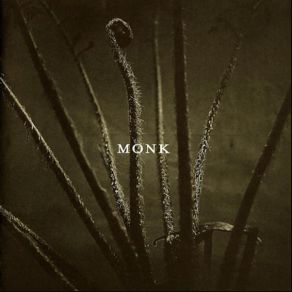Quiver
Download links and information about Quiver by Monk. This album was released in 1997 and it belongs to Alternative genres. It contains 11 tracks with total duration of 48:19 minutes.

|
|
|---|---|
| Artist: | Monk |
| Release date: | 1997 |
| Genre: | Alternative |
| Tracks: | 11 |
| Duration: | 48:19 |
| Buy it NOW at: | |
| Buy on iTunes $9.99 | |
Tracks
[Edit]| No. | Title | Length |
|---|---|---|
| 1. | Womb of God | 5:58 |
| 2. | One Eye Open | 5:51 |
| 3. | Traveler | 1:44 |
| 4. | That's My Love | 5:53 |
| 5. | This Train | 4:56 |
| 6. | Can't Drink the Water | 4:35 |
| 7. | Gyre | 3:32 |
| 8. | Green | 4:46 |
| 9. | Lullabye | 2:41 |
| 10. | Birds of Appetite | 4:26 |
| 11. | Afterglow | 3:57 |
Details
[Edit]Monk is not so much a band as a notebook for the musical doodlings of guitarist Ric Hordinski. In 1997 Hordinski left the band he helped to found, Over the Rhine, to pursue a career as a producer and songwriter. Quiver is in effect his debut solo album. Hordinski shuffles about a small supporting ensemble, alternating between two bass players and two drummers (including OTR's Brian Kelly). The songs smartly blend a number of Hordinski's influences, including the Beatles, Bruce Cockburn, Phil Keaggy, and David Wilcox (who appears on the album). But those ghosts inhabit an ambient guitar atmosphere which is pure Hordinski. Using fancy fretwork and digital effects, he produces an inordinate variety of different guitar sounds — sonorosly quivering vibrato, aggressively buzzing grunge, cleanly shimmering beams of ambiance, and rushes of reverberating rhythm which bounce from wall to wall like Speedy Gonzales on fast-forward. At the time of this release, however, Hordinski was a more accomplished guitarist than producer. His appealing atmospherics occasionally sound less like they're "filling the room" than filling a walk-in closet. And his ability to create interesting sounds sometimes exceeds his ability to arrange those sounds coherently. In some songs, a complex mesh of conflicting rhythms and meandering riffs gets tangled in the background of his tidy pop songwriting. Over the Rhine fans should not expect Hordinski's writing to match the beauty and spark of his former collaborators' songcraft. His pleasant melodies often lapse into flat familiarity, and as a lyricist he seems to be straining hard to surpass the limits of his cliche-prone vocabulary. Happily, he frequently manages to do just that, scrambling fairly ordinary phrases into a kind of fragmented poetry of metaphysics. There are some transcendent recordings here, including most of the instrumentals which pepper the album, and the lead track ("Womb of God"), which spins a lulling web of shimmering guitar and winding violin as its lyrics uneasily nestle into a peace which passes understanding.